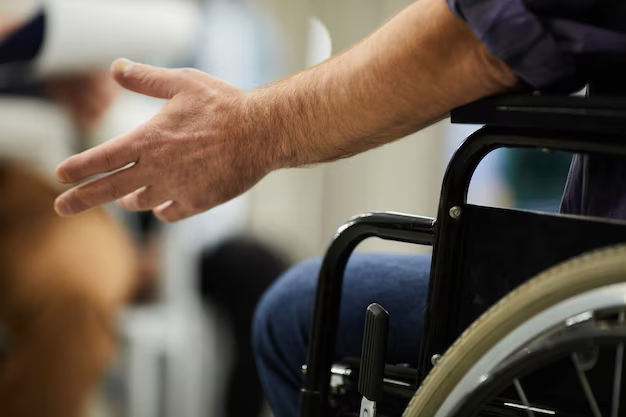Your Guide to What Are The Signs Of Early Parkinson Disease
What You Get:
Free Guide
Free, helpful information about Parkinsons FAQ and related What Are The Signs Of Early Parkinson Disease topics.
Helpful Information
Get clear and easy-to-understand details about What Are The Signs Of Early Parkinson Disease topics and resources.
Personalized Offers
Answer a few optional questions to receive offers or information related to Parkinsons FAQ. The survey is optional and not required to access your free guide.
Recognizing the Early Signs of Parkinson's Disease: What You Should Know
Parkinson's disease is a progressive neurological disorder that can challenge those who encounter it. Detecting its early signs may help in managing the condition and maintaining quality of life. While it can be difficult to identify initially, being aware of subtle changes is crucial. Here's what you should keep an eye out for:
1. Tremors and Shaking
The most recognizable sign of Parkinson’s disease is tremors. These are usually noticeable in a hand or finger, often only on one side at first, and tend to occur at rest. While slight shaking can be a regular occurrence due to stress or physical exertion, persistent or unexplained tremors may warrant further attention.
2. Changes in Handwriting
A sudden change in writing style, particularly when the letters become smaller and more crowded, can signal micrographia—a common symptom of early Parkinson’s. It often indicates dopamine-related changes in brain function even before more apparent physical symptoms develop.
3. Stiffness and Slowness
Muscle stiffness and a general slowing of movement (bradykinesia) can be early indicators. People with Parkinson's often feel like their legs or arms don't move as they should, making simple tasks like getting out of a chair more cumbersome.
4. Balance and Coordination Issues
Experiencing sudden unsteadiness, difficulty in maintaining balance, or frequent tripping could be a cautionary sign. As Parkinson's progresses, these issues can lead to increased falls and further complications.
5. Changes in Facial Expressions
Reduced facial expression or a "masked face" may occur, where the facial muscles become less responsive, affecting smiling and other facial cues. This can be particularly noticeable to family or friends before the individual becomes aware.
6. Vocal Changes
Softening of voice is another signal to watch for. Those affected might speak in hushed tones, or their voice could become monotone, lacking the usual expression and variation in pitch.
7. Diminished Sense of Smell
The loss or change in the ability to detect smells can occur years before the more traditional symptoms appear. Though it can result from other things, such as allergies or cold, consistent changes might imply Parkinson's.
8. Sleep Disruptions
REM sleep behavior disorder is common among those with Parkinson’s, causing vivid dreams and the tendency to move or speak while sleeping. It’s one of the precursors that might indicate the onset of the disease.
Understanding these early signs not only facilitates timely consultation with healthcare professionals for a potential diagnosis but also paves the way for planning and accessing supportive resources.
For those who are diagnosed or support someone with Parkinson’s, financial aspects can be daunting. Fortunately, various government aid programs and financial assistance options exist which can help ease this burden. Below is a tailored selection of resources that might be useful:
🌟 Financial Assistance Programs & Resources
Medicare and Medicaid: Healthcare programs providing medical assistance to those eligible, especially helpful for covering medication and specialist visits.
Social Security Disability Insurance (SSDI): Offers financial support for those unable to work due to disability, including Parkinson’s.
Family Caregiver Support Program: Includes services and support for those who are primary caregivers of individuals with Parkinson’s.
Veterans' Benefits: If applicable, veterans may access special services and benefits related to neurodegenerative diseases.
Educational Grants: Community colleges or online platforms occasionally offer courses on caregiving that could be covered by grants or subsidies.
Non-Profit Support: Organizations like the Parkinson’s Foundation provide resources and sometimes financial aid for individuals and families.
Credit Counseling Services: For managing medical expenses and potential debt, professional advice can ease financial strain.
Embracing a proactive approach by staying informed and seeking appropriate assistance can significantly enhance living with Parkinson's. The journey, although challenging, does not have to be taken alone, with community resources and assistance readily available to support patients and their families.
What You Get:
Free Parkinsons FAQ Guide
Free, helpful information about What Are The Signs Of Early Parkinson Disease and related resources.

Helpful Information
Get clear, easy-to-understand details about What Are The Signs Of Early Parkinson Disease topics.

Optional Personalized Offers
Answer a few optional questions to see offers or information related to Parkinsons FAQ. Participation is not required to get your free guide.


Discover More
- Are There Environmental Causes Of Parkinsons
- Can Alcohol Cause Parkinson's
- Can Concussions Cause Parkinson's
- Can Concussions Cause Parkinson's Disease
- Can Dogs Get Parkinson's Disease
- Can Dogs Get Parkinsons
- Can Dogs Have Parkinson's
- Can Dogs Have Parkinson's Disease
- Can Females Get Parkinson Disease
- Can Head Trauma Cause Parkinson's
